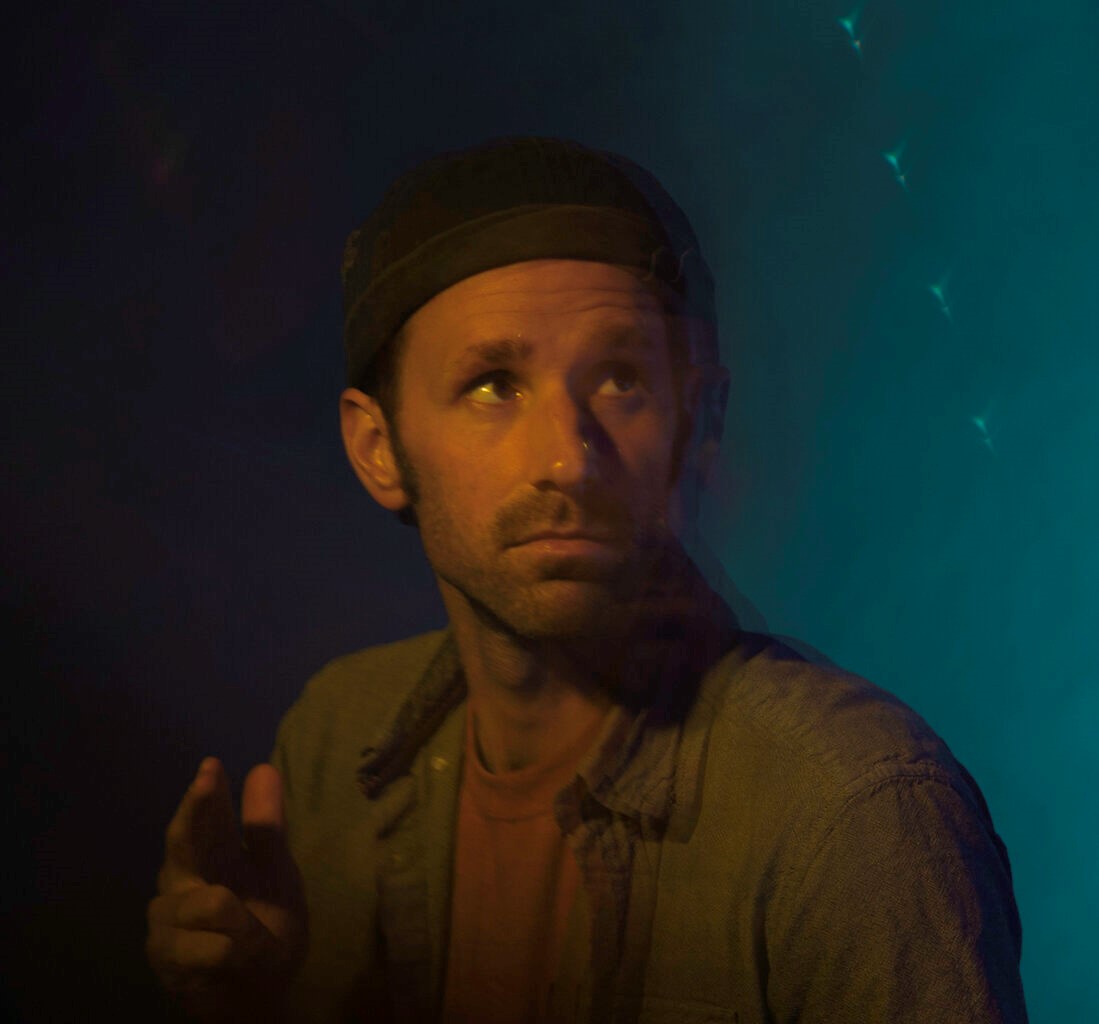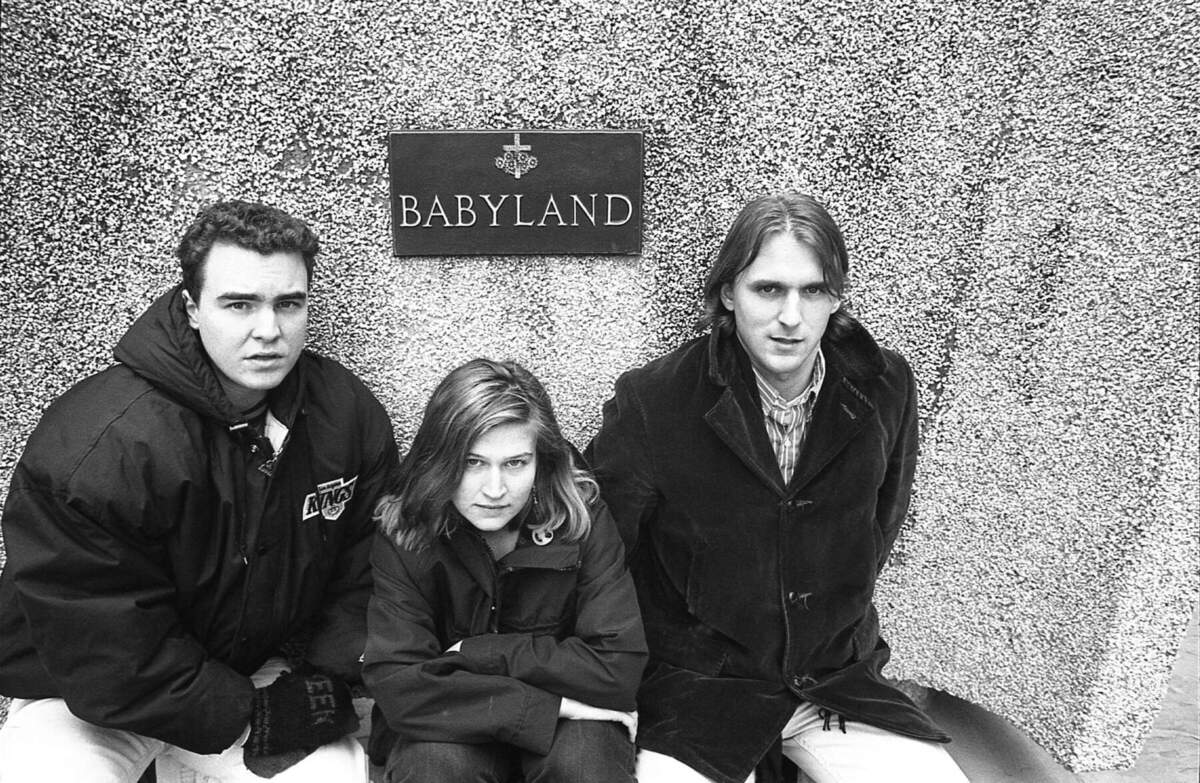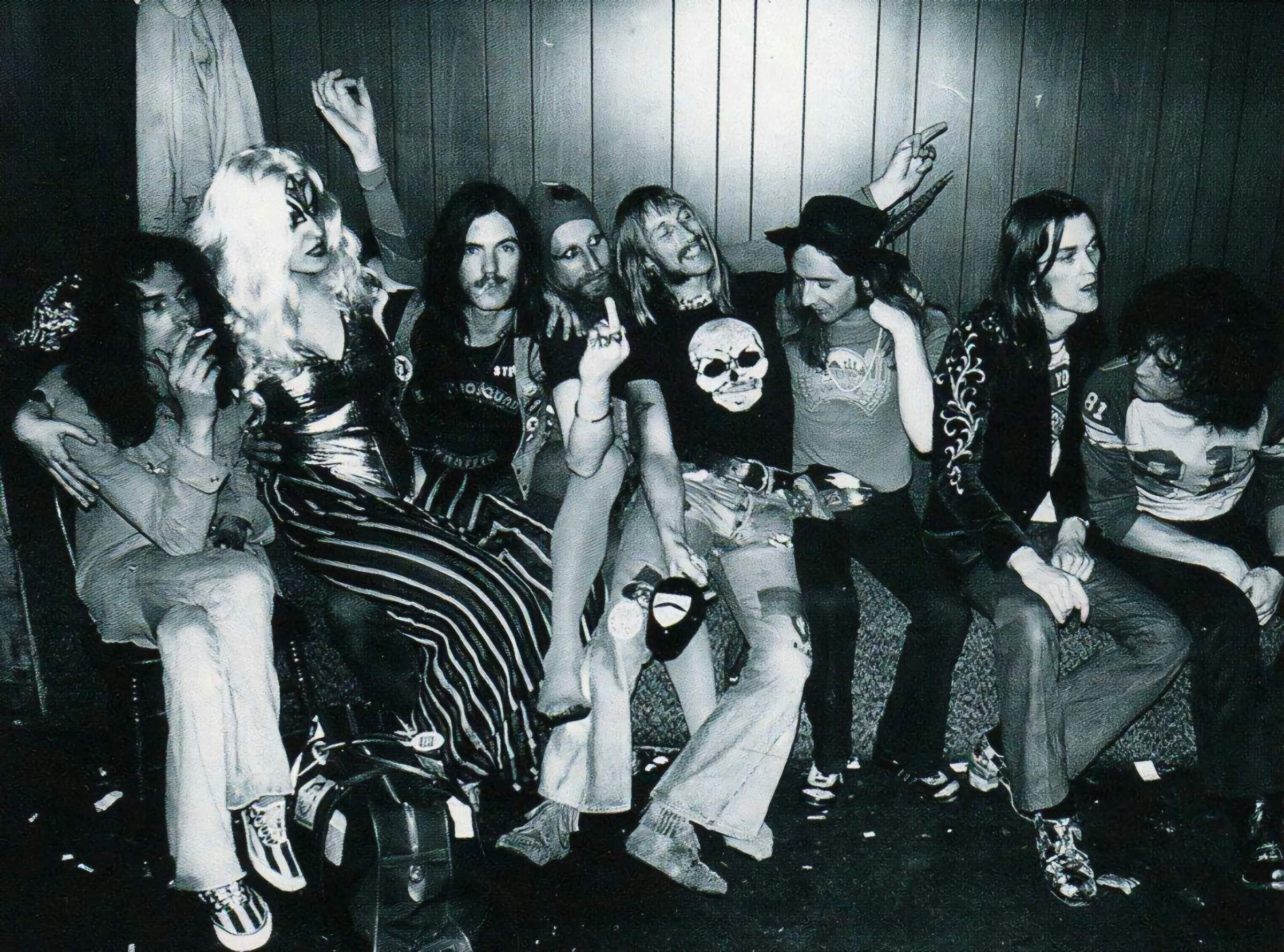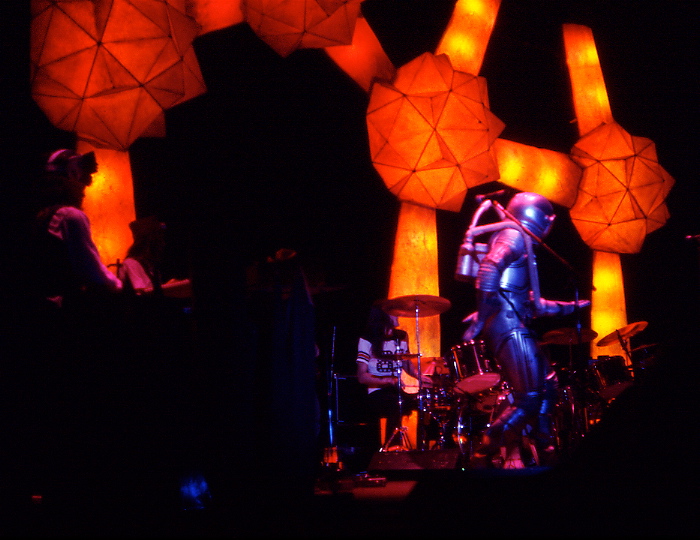Saint Solitude | Interview | New Album, ‘Sugar Pill’
Saint Solitude is the musical persona of Maine native Dup Crosson.
Even before forming his shapeshifter musical outfit Saint Solitude in 2006, multi-instrumentalist Dup Crosson was always driven by a desire to sound bigger than he actually was. His brand of sonic alchemy — what he calls “bittersweet fuzz” — might reveal a solitary angst at its core, but has always been a communal call to action for better times.
When describing the ‘Sugar Pill,’ Crosson says, “For the first time, I wrote songs for a mood I needed badly to reconnect with – joy – even when I didn’t always feel that way. It was songwriting for a distant or slightly magical feeling. And then it just got more fun as I asked a ton of friends to contribute. The process helped me realize there is a completely innocent value in tricking yourself to become happier. I might still be singing about my typical fodder of confusion, abandonment, and revolution, but hope and awe are the active ingredients.”
The album is Saint Solitude’s most collaborative to date, with José Ayerve (Spouse, A Severe Joy), Austin Lemieux (Cruel Hand), Erika Hansen, and many Bay Area musicians like Aviva le Fey, Ross Eustis (Jazz Mafia), Akiyoshi Ehara (The Seshen), Vega Victoria, and Hannah Glass on the album.
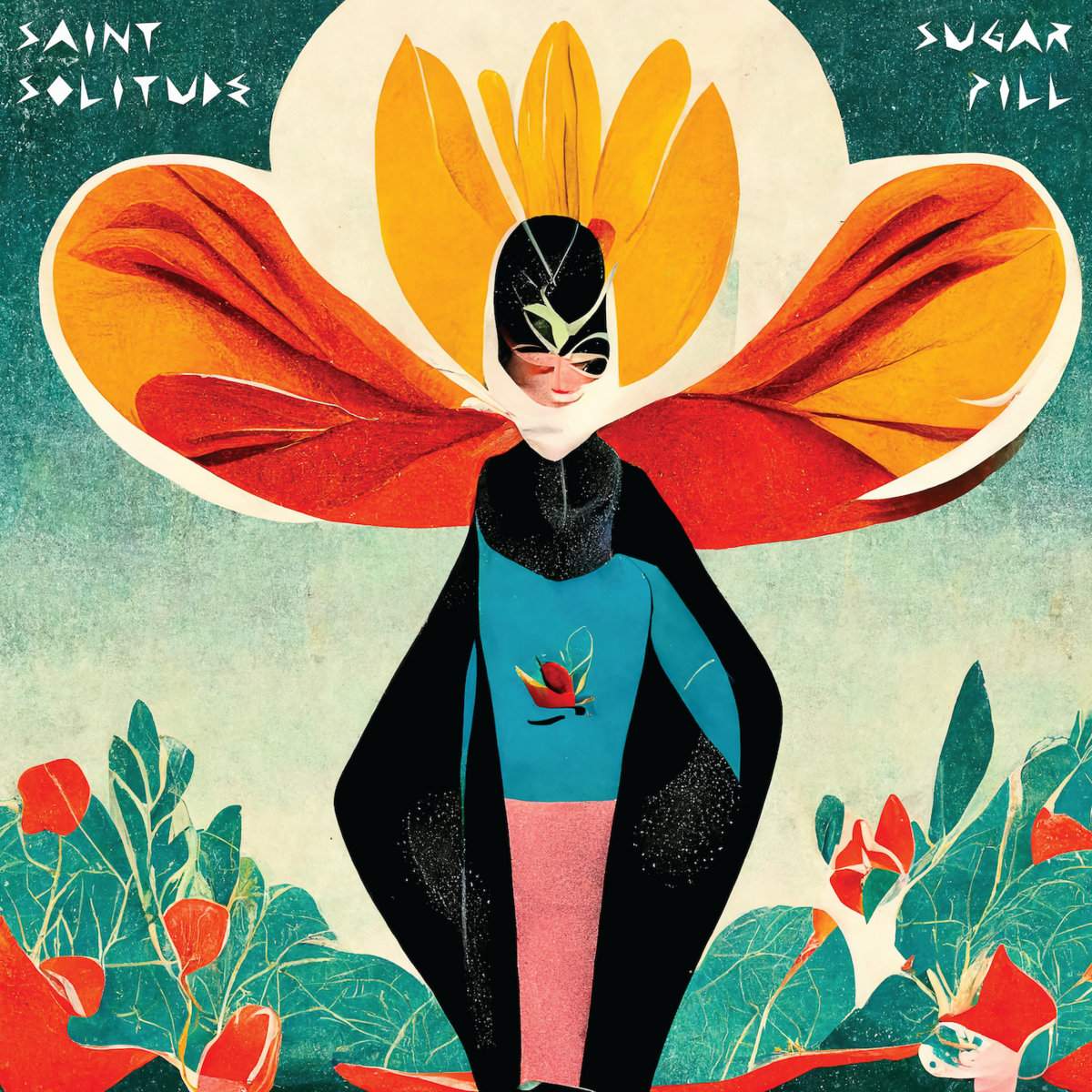
What led you to start a project under the name of Saint Solitude?
Dup Crosson: In high school I made a lot of music on my old Tascam 4-track. It’s how I learned to do overdubs and play multiple instruments. I realized early on I could kinda do everything myself and work at a quicker pace than a lot of bands I was in. In those situations there would inevitably be a big divide between individuals’ commitment levels, either on the writing side or just the non-musical stuff that bands have to do to stay alive and relevant – promotion, booking, the whole deal. So as an adult I thought I should probably have a project that is basically just me under a pseudonym, and it can morph into whatever it needs to be, wherever I’m at. It could move with me, both artistically and geographically, and could ebb and flow depending on my other engagements. I started using the name right around the time I studied in Sweden and was without my drum kit for 4 months for the first time in a decade. I just poured my energies into the one campus piano I could find in Lund and then came home to the U.S. with fresh ideas and momentum. The songs were initially used to start a project called The Cardinal Heart, but that burned out after a few years. By the time that fizzled I had an EP out under the Saint Solitude moniker and was ready to tour solo. I dove in.
Tell us about your background, as a multi-instrumentalist, where did you learn all the instruments?
My older brother Lee was a big influence for me musically. I watched him start with drums, which I eventually copied. And then I watched him pick up the guitar, which I copied. And so on. He certainly influenced my recording obsession too, though I had another older friend who lent me his 4-track and that was really when things got elevated for me. Also, my parents had both played earlier in their lives, so there was gear around to use – or to sneak-use in the case of my father’s bass rig. My Mom was active in musical theater, so there was an electric piano in our living room and she’d host vocal rehearsals at our house. So, there was music around.
‘Sugar Pill’ seems to be a very intimate album, would you like to share some more words about the songs?
That’s interesting. After having written about such super-intimate subjects like grief (see the 2017 project Soul Song Paralytic), I actually feel like this album is much more outward than inward. It’s aspirational and optimistic, more than anything else. I tried to write towards feelings that I wanted to reach, instead of ones that I was already in. Because for much of the writing process, well…it was 2020. California was experiencing apocalyptic wildfires, there was a pandemic going full bore, the election chaos was in full swing, and I missed my community and my people in a very painful way. I needed to write myself out of that world and into one where I could breathe and see again.
What I call the Michael Stipe approach to lyrics is something I always took to heart – writing about things that are deep and meaningful, but often using proxies of other people’s perspectives or in some cases, fictional characters, to create a distance. Since I adore a lot of bittersweet progressions and intervals, it helps me avoid becoming over-sentimental. For instance, I very rarely write love songs. I don’t think I’m very good at them – the one Saint Solitude album full of them is my least favorite!
You collaborated with artists such as José Ayerve (Spouse, A Severe Joy), Austin Lemieux (Cruel Hand), Erika Hansen, and many Bay Area musicians like Aviva le Fey, Ross Eustis (Jazz Mafia), Akiyoshi Ehara (The Seshen), Vega Victoria, and Hannah Glass. Tell us what was the energy between you?
Each case is so different. I’ve known José and Austin, for decades, from Maine. José is probably the biggest musical mentor I’ve had throughout my life other than my brother, and we’ve been fortunate to have a fruitful artistic relationship over the years with him mixing ‘A Crack in The Snow Mortar’ and ‘Soul Song Paralytic’. We’ve also played and toured together a few times in his roving collective Spouse. I love singing and writing with him. Austin and I went to high school together, and he inspired me to drop out of college once to play music. We made great whiskey-fueled space rock that no one ever heard in Boston circa 2005. I knew when I was writing ‘Another Thing To Be Vengeful’ that he was the only person who could get stratospherically weird with the lead guitar, so I thought it was a good chance to reconnect.
A lot of the Bay area folks were people I had seen play but didn’t know personally, or we had mutual friends in the scene. Aviva I was curious to work with after seeing her play in a Brazilian jazz group that I wish was still around, Soneca. Aki was someone with whom I’d wanted to work since hearing his band The Seshen, who were one of the first bands I loved when I moved to the Bay area. He really helped me shape ‘Grand Ellipses’ into this hybrid percussive thing that I didn’t know how to do by myself.
Singing with Victoria was an easy choice because we’ve played together for years in Vega Victoria and our voices gel really well together. That song, ‘8 Circle,’ is about my cat Casco who died right before the pandemic, so it helped having a friend and someone who knew him sing that one with me.
I connected with Hannah Glass through a Sundance performance I did in 2021 with Angèlica Ekeke. We both had a lot of fun piecing together a small orchestra of string overdubs for the closing track ‘Omni’ – her assistance on that helped me make the type of song I’ve always wanted to do – insanely ambitious orchestral rock with multiple drum sets and solos. I was very much going for the Spiritualized production on that one, and I love that it worked as a closer. I’ve been saying to friends I could happily retire if that was the last song people heard from Saint Solitude.
Where was the album recorded?
I did the drums to tape with Maryam Qudus at Tiny Telephone, and the rest was done digitally at my home studio, Stumble Abode. All in Oakland, except some of the remotely recorded parts by Erika, Austin, and Aviva.
Can you share some further words about the recording and producing process?
I’m still a stickler for doing drums to tape since they just sound so much better (especially the kick). Mark Alan Miller, who masters all my albums, got me hooked on that back in Massachusetts, and I’m likely never going back. Tiny Telephone has been my go-to studio since moving to the Bay. I like being able to drum with someone else’s engineering because drums are my first instrument, and it’s the first layer I always record for any album. Playing the simultaneous engineer and performer is a lot of work – and I do it all the time – so I like to relieve that burden in the beginning of the process.
Most of the albums I’ve made over the years have an element of home production. It’s the way I prefer to work after having experienced what it’s like to make a full album in the studio. Although I could absolutely do that all the time if money wasn’t a factor, the constant clock-watching and needing to adhere to a limited budget always felt limiting to me from a psychological standpoint, and downstream from that, as a player and producer. I prefer experimenting on my own time, smoking pot and going wild with ideas on my own time, and failing on my own time. It’s all absolutely essential to me if I’m to challenge myself and write good songs. I find that challenges are the best way to maintain a good standard of quality.
How pleased were you with the sound of the album?
Oh, I’m absolutely pleased. Neil Godbole and I spent forever mixing it, but it paid off. There’s a reason I wanted to put this one on vinyl, which I’ve never done before. I really think it’s the best record I’ve made, in both sonic qualities and the songs. I can hear in this record that I’ve learned a new type of patience with the process, and that will be invaluable to me moving forward. I also love that it’s more upbeat than anything I’ve done in 10 years – writing to that optimistic mood was the goal.
What are some of the most important players that influenced your own style and what in particular did they employ in their playing that you liked?
The older I get, the larger my set of muses grows. Today I listened to Gillian Welch’s ‘Hell Among The Yearlings’ and then put on King Gizzard and Lizard Wizard’s metal album. I think that’s a good microcosm of my tastes.
Billy Corgan has and likely always will be my songwriting hero because he does not give a fuck and will try anything. The Pumpkins’ variety is always what drove me to them and what keeps my interest. It’s an insane thing, if you think about it, to demand that a band remain this idealized version of themselves in your brain, but a lot of people do it. Artists have to evolve to have integrity. I also appreciate any bands that are as prolific as them – Deerhoof have been occupying a lot of my music brain lately for the same reason.
Neko Case is on her own pedestal for me, too. She is able to capture a ferocity and a grace that is rarely combined, and her brand of feminism is a salve to the horrors of the world. She is deeply connected with the natural world and sings about that connection with tenderness but not sentimentality. As someone who has always had a foot in conservation and environmental work, I love that she sits at that nexus of the wilderness and creativity.
I’m also always watching The National very closely. I feel like they’ve taken up the mantle that R.E.M. had, slowly building a respectful career and getting bigger all the while. Aaron Dessner’s production – especially on drums – is a constant northern star.
Do you have any active side-projects going on at this point?
I always have a lot going on, though the pandemic has slowed my freelance work. I’m trying to get a few of my projects to record some albums right now, but nothing is set in stone. I’m still working on my production music house, EDBL Music Collective, which I helped start in 2020, and we just did a fun weekend of writing and recording. As always, we’re looking for clients to collaborate with. We really want to score a film or a videogame.
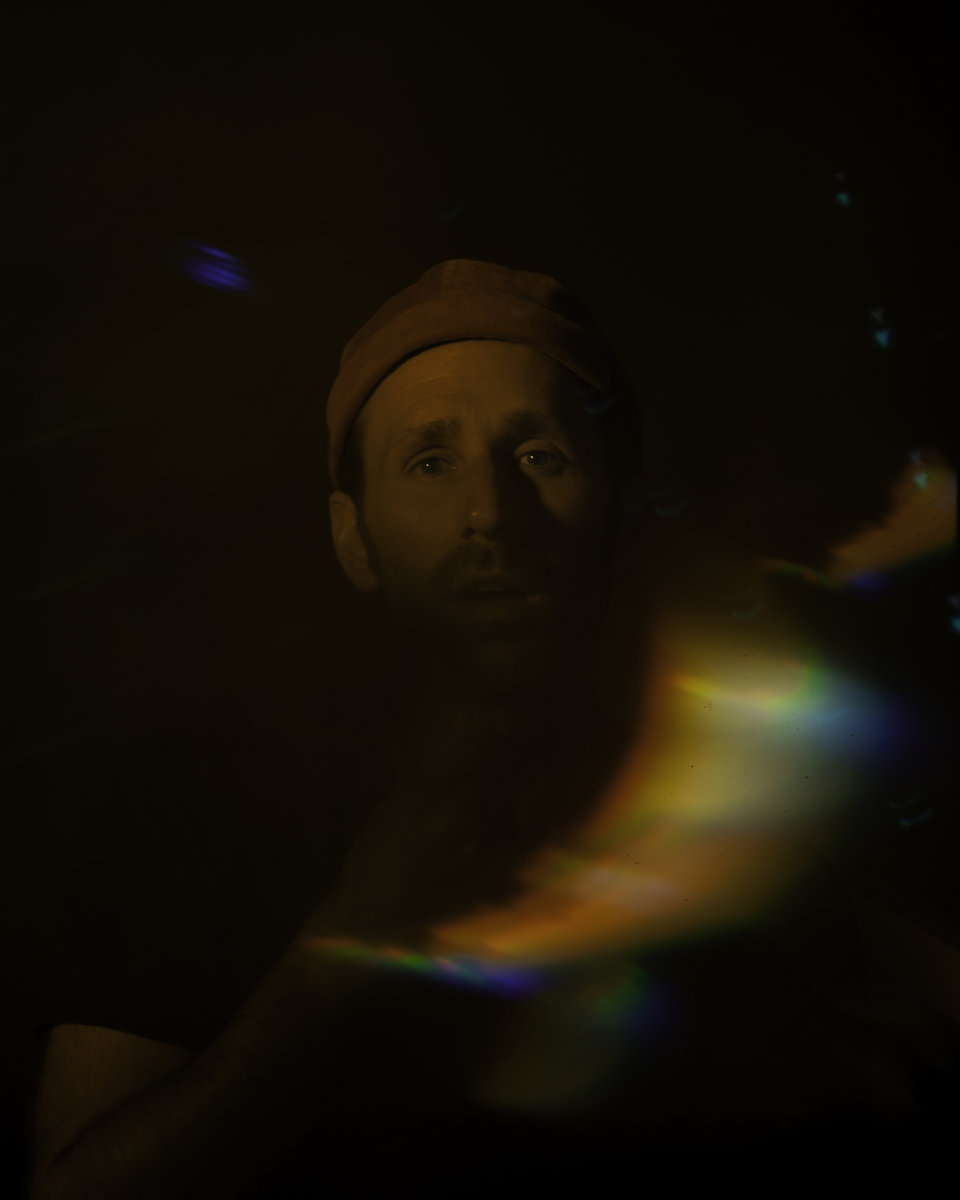
Let’s end this interview with some of your favourite albums. Have you found something new lately you would like to recommend to our readers?
The Smashing Pumpkins – ‘Mellon Collie and the Infinite Sadness’
Neko Case – ‘Fox Confessor Brings The Flood’
Adem – ‘Homesongs’
Sunny Day Real Estate – LP2
The National – ‘Boxer’
R.E.M. – ‘Murmur’
Manic Street Preachers – ‘The Holy Bible’
Echo and the Bunnymen – ‘Ocean Rain’
The Besnard Lakes – ‘The Besnard Lakes Are The Roaring Night’
Nick Drake – ‘Pink Moon’
Led Zeppelin – ‘Houses of the Holy’
The Mercury Program – ‘A Data Learn the Language’
Lately I’ve been digging on the new Bonny Light Horseman album, ‘Rolling Golden Holy’. I like that Wand album ‘Laughing Matter’. Elder’s ‘The Gold and Silver Sessions’. The Japanese Breakfast song ‘Paprika’ is easily my favorite song of the last few years. The Bad Plus – just saw them recently.
Klemen Breznikar
Headline photo: Louis Bryant III
Saint Solitude Official Website / Facebook / Instagram / Twitter / Bandcamp

